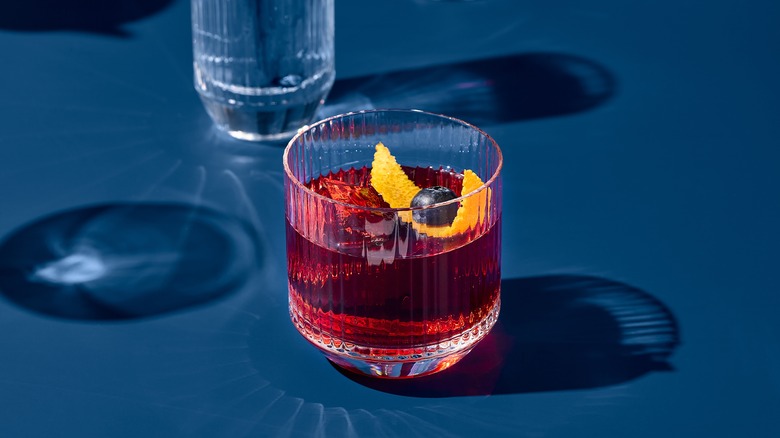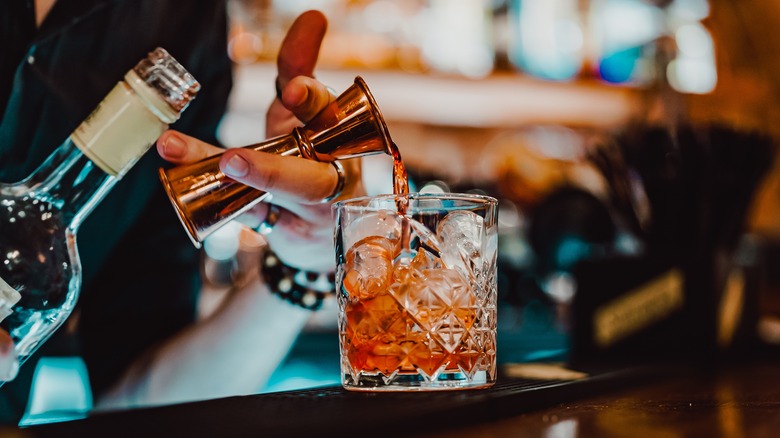You Can't Have A Perfect Negroni Without A Bold Gin Choice
Take a seat, Aperol Spritz. A Negroni is the grown-up aperitif cocktail that deserves your attention. This cool, orange-hued beauty is uncomplicated in its makeup and complex on the palate. It is refreshingly bitter and citrusy and only improves as ice dilutes the drink.
The cocktail couldn't be simpler: equal parts gin, sweet vermouth, and Campari garnished with an orange peel. Simple, right? Well, simplicity requires balance. Because the cocktail has only three ingredients, those ingredients must get along. The gin can easily get lost in the mix when it's batting against powerful Campari, a bitter and citrus-forward liqueur with notes of cloves and cinnamon. So, go for a gin that packs a punch.
The Negroni was an accidental invention in Florence by Italian Count Camillo Negroni who wanted a stiffer drink. He ordered the classic Americano with gin instead of soda water in 1919. And there it was, the perfect drink. Though we don't know the exact gin the Count got, we do know it plays the biggest role in differentiating this cocktail.
Keep your gin up
Gin is made by distilling neutral alcohol with juniper berries and botanicals, spices, fruits, and dried flowers. The proportion of each of these ingredients is different for each distiller, meaning gin can range from floral and delicate to spicy and bold. Some are better for elegant martinis, while others can take on many spirits.
For a great Negroni, consider the juniper flavor in the gin. A strong juniper presence will be assertive against Campari and sweet vermouth, but it won't overpower. A gin with more floral characteristics would become overwhelmed in the concoction — you'd barely taste it amongst the other flavors.
Also, look for gins with notes of citrus. A Negroni is garnished with an orange peel; the complementary flavor of a citrusy gin will make the cocktail refreshing. While London dry gin is the classic choice for a Negroni because of its bold juniper flavors, Plymouth and Japanese gins are also great choices.
Go for a sweet vermouth
Where you've got bitter, you need sweet. The sugary component in the Negroni is vermouth, a fortified wine flavored with herbs, spices, and botanicals. Vermouth can vary in levels of sweetness from dry white vermouths to sweet red vermouth.
In a Negroni, the Campari offers bitterness and citrus, the gin gives herbal and juniper notes, and the vermouth adds balance with complex sugar and spices. A dry vermouth in a Negroni would taste bitter when mixed with Campari and gin so opt for a sweet vermouth instead. The sugar is essential to balance out the bitterness in the cocktail and add color.
Negronis are simple cocktails perfected with balancing flavors of bitter, citrusy, and sweet. Keep the proportions equal for each ingredient and you can experiment with your own combos: substitute gin with bourbon and you've got a Boulevardier, or try mezcal for a smoky and spicy effect. You can even try different garnishes — add a sprig of rosemary or mint, or try lemon or tangerine peel instead of orange. You might land on a house version that works just for you. The Italian Count did invent this drink accidentally, after all.


